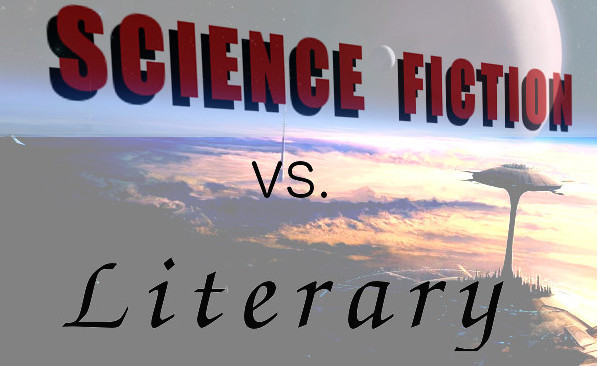BRING ON THE WONDER
/Close Encounters of the Third Kind from Columbia Pictures
Sales figures for books show that sales of science fiction and fantasy novels have been on the decline, and especially science fiction. It’s possible that the numbers are misleading because, in fact, genre novels like SFF do well in e-book form and e-book sales aren’t always tracked well. But why any decline at all? Aren’t we living in an age when science fiction is coming true?
Maybe that’s the problem. Could it be that some of the wonder has been lost?
I’m not pointing any fingers. Scientific knowledge has made great advances since the early days of SF. The effect of all that discovery on the fiction we love is mixed. Good stories sometimes get bogged down in scientific explanation. I suspect the SF readership has become more divided than ever between those who revel in details gleaned from articles in the latest Nature or Annals of Botany or Journal of Neuroscience, and the fans who start yawning when they run into a dense paragraph of technical terminology or math. Then too, there’s no question that the more we know about the universe, the more our imagination must be constrained by the facts. We do call it science fiction, after all. Good luck selling a new story that features beautiful Martian princesses who ride flying yachts (although if you change it to a fictional place and call it fantasy, you’ll have better odds). If your characters get around in a faster-than-light spacecraft, you’ll need a good explanation for why you’re right and Einstein was wrong. I suspect it’s easier to let magic explain everything (and less of a strain on readers who don’t have a PhD in physics).
Or maybe it’s that we see so many technological marvels everywhere we turn, we’re getting hard to impress. Our cell phones may not have the range of Captain Kirk’s communicator, but they can do a lot more. Prototype test cars can drive themselves—heck, yours might park itself already. Our fridges will soon be able to keep themselves stocked as nanotechnology and computer networking transform our household products. The space industry is populated by private companies instead of just governments, and almost ready for tourists.
Our sources of entertainment are advancing all the time, too. In the 1950’s and ‘60’s Arthur C. Clarke could take us to a lunar city in Earthlight or the moons of Jupiter in 2001: A Space Odyssey and we’d be filled with awe. Ray Bradbury could describe a tourist expedition to the distant past and we would hear the “Sound of Thunder” from dinosaur feet. But now computer graphics have shown us hundreds of movie space scenes in perfect, eye-grabbing detail. There have been four Jurassic Parkmovies and even dinosaur-era time-travel series on TV (remember Terra Nova?) Film-making has changed a lot, too, from the long, slow pan across the mind-boggling starship of Close Encounters of the Third Kind to the quick cuts and frenetic action of the Battlestar Galactica and Star Trekremakes. I was totally captivated when I first explored Rama with Clarke and the Ringworld with Larry Niven. But now you can experience some pretty amazing stuff at Disney World.
Does that mean that written SF is in a slump because it’s not possible to wow people anymore? I don’t think so.
It should be more fruitful than ever to feature stories on alien planets now that we actually know they exist, and have data on some really strange ones. Space flight will be more accessible to everyone in the not-too-distant future now that private industry is involved. Computer technology is advancing in ways almost no one foresaw, along with miniaturization and robotics. Not to mention genetic engineering and its stunning potential for good and for bad. All of these fields and more should provide fodder for incredible stories with a recognizable basis in current reality. The “wow” factor must be in making the reader immerse themselves in the world of the story, experiencing what the characters do and enjoying the thrill of potent new technology, bizarre worlds, exotic social structures and more without having to go back to university first.
After all, even every day life has moments of wonder and awe. How many more await us in the extraordinary realm that lies just beyond our view?




